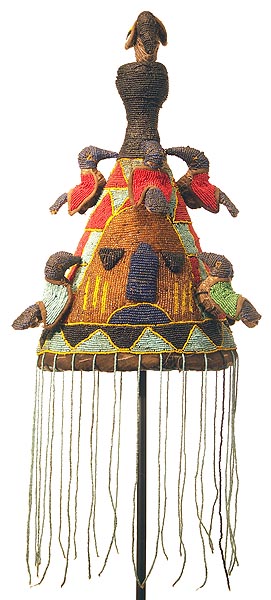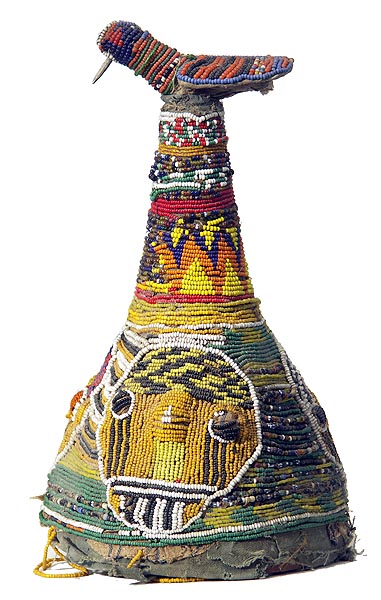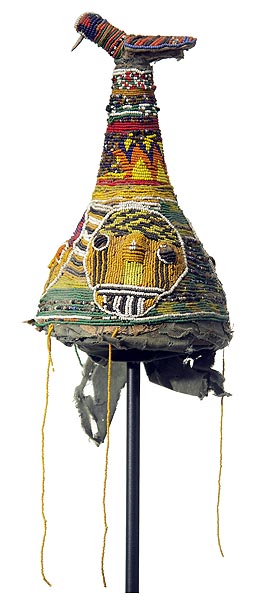Unveiling the Tapestry of Yorubaland: A Geographical and Cultural Exploration
Related Articles: Unveiling the Tapestry of Yorubaland: A Geographical and Cultural Exploration
Introduction
With great pleasure, we will explore the intriguing topic related to Unveiling the Tapestry of Yorubaland: A Geographical and Cultural Exploration. Let’s weave interesting information and offer fresh perspectives to the readers.
Table of Content
- 1 Related Articles: Unveiling the Tapestry of Yorubaland: A Geographical and Cultural Exploration
- 2 Introduction
- 3 Unveiling the Tapestry of Yorubaland: A Geographical and Cultural Exploration
- 3.1 The Geographic Landscape of Yorubaland
- 3.2 Cultural Tapestry of Yorubaland
- 3.3 The Importance of Yorubaland
- 3.4 FAQs About Yorubaland
- 3.5 Tips for Exploring Yorubaland
- 3.6 Conclusion
- 4 Closure
Unveiling the Tapestry of Yorubaland: A Geographical and Cultural Exploration

Yorubaland, a vibrant tapestry of culture, history, and geography, stretches across West Africa, encompassing a significant portion of modern-day Nigeria, Benin, and Togo. Its intricate landscape, rich cultural heritage, and enduring traditions have shaped the region’s identity and continue to inspire its people. Understanding the geographical and cultural nuances of Yorubaland is essential for appreciating its multifaceted significance in the African narrative.
The Geographic Landscape of Yorubaland
Yorubaland’s geographical boundaries are not definitively fixed, with historical and cultural influences blurring the lines. However, it is generally understood to encompass the following areas:
- Nigeria: The majority of Yorubaland lies within Nigeria, encompassing the southwestern states of Lagos, Ogun, Oyo, Osun, Ekiti, Ondo, and Kwara. This region features a diverse landscape ranging from coastal plains to rolling hills, with the Osun River serving as a significant geographical and cultural landmark.
- Benin: The southwestern region of Benin, known as "Fonland," is considered part of Yorubaland due to its shared history and cultural connections. This area is characterized by its proximity to the Atlantic Ocean and its fertile plains.
- Togo: A small portion of southeastern Togo, known as "Ewe," also shares cultural ties with Yorubaland, making it a significant part of the broader cultural landscape.
Ecological Diversity:
Yorubaland’s diverse landscape is characterized by a variety of ecological zones:
- Rainforest: The southwestern region is dominated by lush rainforests, rich in biodiversity and home to a wide range of plant and animal species.
- Savanna: Moving further inland, the landscape transitions into savanna grasslands, characterized by a distinct dry season and scattered trees.
- Coastal Plains: The coastal areas of Yorubaland are characterized by flat plains, ideal for agriculture and fishing.
- Hills and Mountains: The region also includes hills and mountains, such as the Obudu Plateau in Nigeria, providing scenic views and unique microclimates.
Resources and Economy:
Yorubaland’s diverse landscape provides a wealth of natural resources, contributing to its economic activities:
- Agriculture: The fertile soils and favorable climate support a thriving agricultural sector, with crops like cocoa, palm oil, cassava, and yams being major exports.
- Forestry: The rainforest provides timber and other forest products, contributing to the local economy.
- Mining: The region also holds mineral resources such as limestone, granite, and iron ore.
- Tourism: The cultural and natural attractions of Yorubaland draw tourists from around the world, contributing to the region’s economy.
Cultural Tapestry of Yorubaland
Yorubaland is renowned for its vibrant and multifaceted culture, shaped by centuries of traditions, beliefs, and artistic expressions.
Language and Literature:
- Yoruba Language: The Yoruba language, spoken by over 40 million people worldwide, is a tonal language with a rich vocabulary and complex grammar. It is a key element of Yoruba identity and cultural expression.
- Oral Traditions: Yoruba culture places a strong emphasis on oral traditions, with stories, songs, proverbs, and folktales passed down through generations. These traditions preserve history, values, and cultural knowledge.
- Literary Heritage: Yoruba literature encompasses a wide range of genres, including poetry, prose, drama, and oral narratives. Notable works include the "Oyo Mesi" epic and the "Afonja" play.
Religion and Spirituality:
- Traditional Religions: Yorubaland is home to a diverse range of traditional religions, with a strong emphasis on ancestor worship, deities, and spiritual forces.
- Islam and Christianity: The arrival of Islam and Christianity in the region has introduced new religious influences, leading to a complex religious landscape.
- Syncretism: The blending of traditional beliefs with elements of Islam and Christianity has resulted in syncretic religious practices, reflecting the dynamic nature of Yoruba spirituality.
Art and Crafts:
- Traditional Arts: Yoruba art is characterized by its intricate designs, vibrant colors, and symbolic representations.
- Sculpture: Yoruba sculpture is renowned for its expressive forms, often depicting deities, ancestors, and other figures of significance.
- Textile Arts: Traditional Yoruba textiles, such as "aso oke" and "adire," are renowned for their intricate patterns and vibrant colors.
- Music and Dance: Yoruba music and dance are integral parts of cultural expression, with a wide range of genres and styles reflecting different social contexts.
Social Structure and Values:
- Extended Family: Yoruba society is characterized by strong family ties, with the extended family playing a central role in social life.
- Community: The concept of "community" is highly valued in Yoruba culture, with individuals expected to contribute to the well-being of their community.
- Respect for Elders: Respect for elders is a fundamental principle in Yoruba culture, with elders holding positions of authority and wisdom.
- Hospitality: Yoruba people are known for their hospitality and generosity, welcoming visitors with warmth and kindness.
Historical Significance:
Yorubaland has a rich and complex history, marked by periods of prosperity, conflict, and cultural exchange:
- Ancient Yoruba Kingdoms: The region was home to several powerful kingdoms, including Oyo, Ife, and Benin, which flourished for centuries.
- Transatlantic Slave Trade: The transatlantic slave trade had a profound impact on Yorubaland, leading to the displacement of millions of people and the disruption of traditional societies.
- Colonial Era: The region came under British colonial rule in the late 19th century, leading to significant changes in political and economic structures.
- Independence and Modernity: Since independence, Yorubaland has undergone a period of rapid modernization, with challenges and opportunities shaping the region’s future.
The Importance of Yorubaland
Understanding the geographical and cultural complexities of Yorubaland is crucial for appreciating its multifaceted significance:
- Cultural Hub: Yorubaland serves as a cultural hub for West Africa, with its traditions and values influencing neighboring regions.
- Economic Powerhouse: The region’s diverse resources and vibrant economy contribute significantly to the development of West Africa.
- Global Influence: Yoruba culture has had a global impact, with its music, art, and literature influencing artistic movements worldwide.
- Historical Significance: Yorubaland’s rich history provides valuable insights into the development of West Africa and the African diaspora.
FAQs About Yorubaland
1. What are the major cities in Yorubaland?
Some of the major cities in Yorubaland include:
- Ibadan: The largest city in Yorubaland, known for its bustling markets and cultural heritage.
- Lagos: Nigeria’s commercial capital and a major port city, with a diverse population and a vibrant cultural scene.
- Oyo: A historical city, known for its traditional architecture and its role as the capital of the Oyo Empire.
- Ife: A sacred city, considered the birthplace of the Yoruba people and renowned for its ancient terracotta sculptures.
- Abeokuta: A city known for its role in the resistance against the slave trade and its vibrant traditional arts.
2. What are some of the key cultural events in Yorubaland?
Yorubaland is home to a variety of cultural events, including:
- Oshogbo Festival: A week-long festival held in Oshogbo, Osun State, celebrating the Yoruba goddess of fertility, Oshun.
- Egungun Festival: A colorful and vibrant festival held in various Yoruba communities, honoring ancestors and celebrating their legacy.
- Eyo Festival: A traditional festival held in Lagos, featuring masked dancers and colorful costumes.
- Yoruba Heritage Festival: An annual festival held in various locations, showcasing Yoruba culture, music, dance, and art.
3. How has Yorubaland been affected by the transatlantic slave trade?
The transatlantic slave trade had a devastating impact on Yorubaland, leading to the displacement of millions of people and the disruption of traditional societies. The trade also led to the introduction of new cultural influences and the development of new forms of resistance.
4. What are some of the challenges facing Yorubaland today?
Yorubaland faces a number of challenges, including:
- Poverty and Inequality: Despite its economic potential, Yorubaland still faces significant poverty and inequality, with disparities in access to education, healthcare, and other resources.
- Environmental Degradation: The region faces challenges related to deforestation, pollution, and climate change, impacting its natural resources and ecosystems.
- Political Instability: Political instability and conflict in neighboring countries can impact the region’s security and stability.
5. What are some of the opportunities for development in Yorubaland?
Despite the challenges, Yorubaland also presents significant opportunities for development:
- Economic Diversification: The region can diversify its economy by investing in sectors such as technology, tourism, and renewable energy.
- Education and Skills Development: Investing in education and skills development can empower the region’s workforce and promote economic growth.
- Cultural Tourism: The region’s rich cultural heritage offers significant potential for cultural tourism, generating revenue and promoting cultural exchange.
Tips for Exploring Yorubaland
1. Research and Plan Your Trip: Before visiting Yorubaland, research its different regions, cultural attractions, and travel requirements.
2. Respect Local Customs: Be mindful of local customs and traditions, including dress codes, greetings, and etiquette.
3. Learn Basic Yoruba Phrases: Learning a few basic Yoruba phrases can enhance your interactions with locals and deepen your cultural immersion.
4. Engage with Local Communities: Seek opportunities to engage with local communities, learn about their traditions, and experience their hospitality.
5. Support Local Businesses: Patronize local businesses, restaurants, and artisans to contribute to the local economy and support sustainable development.
Conclusion
Yorubaland, with its diverse landscape, vibrant culture, and enduring traditions, stands as a testament to the resilience and adaptability of the Yoruba people. Understanding the region’s geographical and cultural nuances is essential for appreciating its multifaceted significance in the African narrative. By engaging with its history, culture, and contemporary challenges, we can gain a deeper understanding of this dynamic and influential region and its enduring contribution to the global landscape.








Closure
Thus, we hope this article has provided valuable insights into Unveiling the Tapestry of Yorubaland: A Geographical and Cultural Exploration. We thank you for taking the time to read this article. See you in our next article!